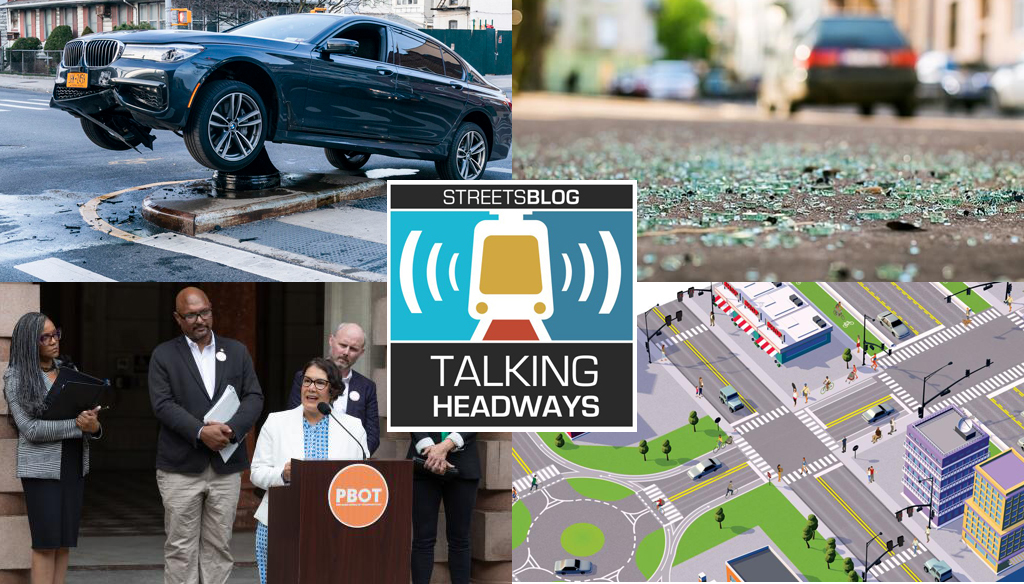This week, we’re joined by UC Davis professor Kari Watkins and epidemiologist Dave Ederer to talk about their paper, The Safe Systems Pyramid: A New Framework for Traffic Safety. It’s about time more people talk about the connections between transportation and public health — and how public health officials can do much more to support transportation safety.
Click the player below to listen. But below that is an edited and condensed transcript. If you want to read the full 40-minute conversation — and we recommend that — click here. Or you can read Ederer’s full dissertation on the Georgia Tech’s website.
Edited section:
Jeff Wood: Here’s something interesting: the epidemiologic idea that the collision itself isn’t the cause of the collision.
Dave Ederer: The important point in all of this is, “What is the pathology? What is the cause of the injury?” because that’s what we have to focus on. And that’s something that public health brings because that changes how we design and do things. And that goes back to three researchers Dehaven, Gibson and Hadden who were thinking about kinetic energy as pathological. And once you see that distinction, I think it changes how you do things. So Hadden, who is a medical doctor and an epidemiologist, and the first NHTSA administrator, as it turns out he compared it to tuberculosis.
So there’s different symptoms to TB like human wasting. You can try to solve human wasting, by, say giving people lots of food. But you know, if you think causally — What is causing that human wasting? — you might say they’re losing weight, right? But in reality, the cause of that is micro-bacteria in tuberculosis infecting the human body. So you have to think about preventing that infection in the first place to solve human wasting. It’s the same idea. We have to think about preventing the transfer of kinetic energy to actually prevent injuries and deaths.
We’ve primarily thought about crash prevention, which isn’t the same thing. It’s injury and death, right? We have to think about preventing injuries and death. And that’s, that’s actually where the light bulb turned on for me many, many years ago when I heard about Vision Zero and people were saying we actually have to prevent injuries and death, crashes are important, but they aren’t nearly as important as human health.
Kari Watkins: I would add on that part of the engineering aspect is going back to the root cause of what’s happening. Like in the tuberculosis example, they can treat this patient, but if they can eradicate the disease in the first place, then that’s great. And so I think in injury prevention, like Dave said, we’re worried about preventing the injury, preventing the death — creating a system where if a crash were to occur, it’s not going to be as bad of a crash, right? But as we’ll get into with the Safe Systems Pyramid, there’s lots of ways that we can protect those people. Airbags and seat belts and things like that.
But we don’t want to get away from the fact that if we design the roadway differently than we could prevent the crash in the first place. Or even if the crash would occur, it would be such a minor crash. So, it’s not just about creating, giant vehicles that are going to protect their own inhabitants…
Jeff Wood: They’re kind of like houses, right?
Kari Watkins: It’s about creating a system where the energy between that vehicle and whatever it’s crashing into is reduced. We’re thinking about policies, design, all of the vitally important things, not just a campaign to get us to a 100-percent seatbelt usage or more airbags in vehicles that we have to look back to like the fundamental design of the roadway system and how these systems interact.






